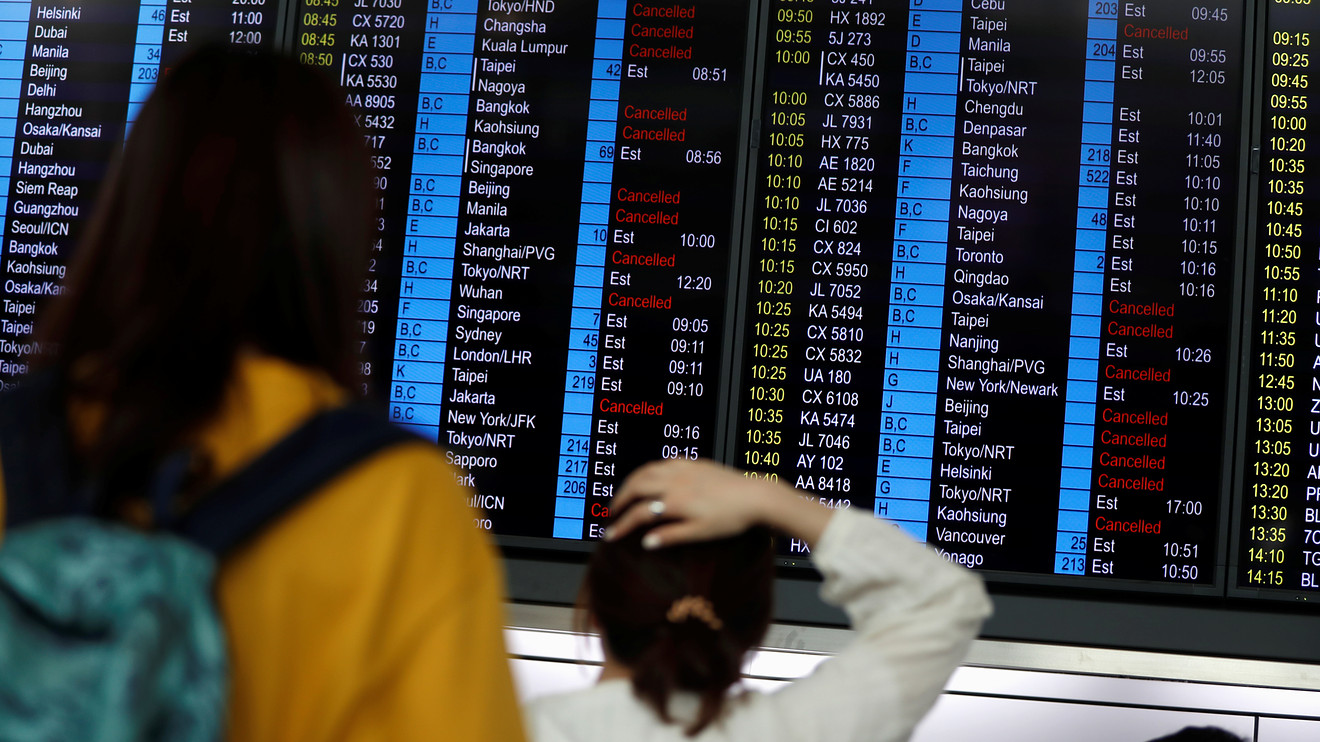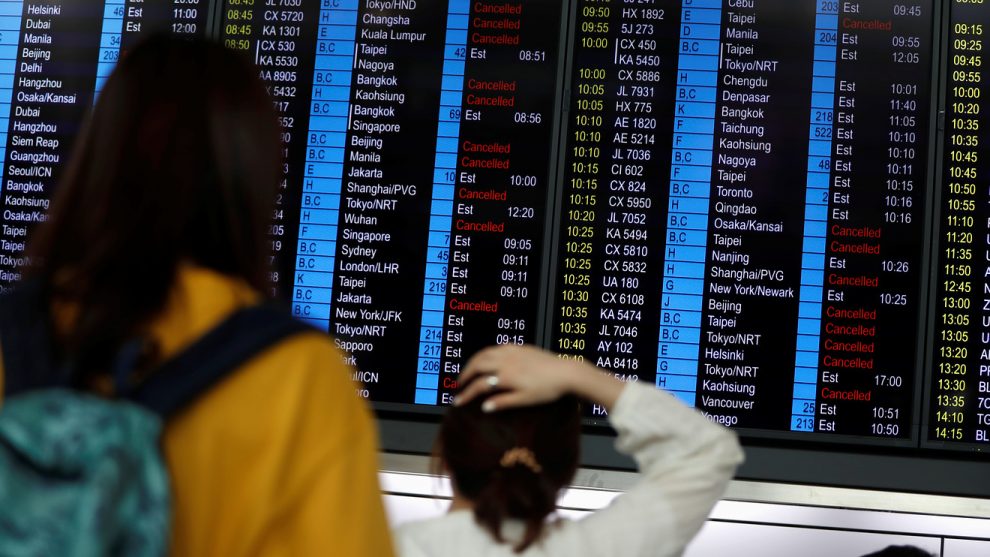
Asian markets fell in early trading Tuesday as tensions in Hong Kong ratcheted up following protests Monday that shut down the city’s airport.
Hong Kong’s airport, one of the world’s busiest, struggled to reopen Tuesday, while protests continued, though at a smaller scale. While some flights resumed, many were canceled amid a backlog of flights following Monday’s closure.
After 10 weeks, the pro-democracy demonstrations show no sign of letting up, while Chinese officials have used the term “terrorism” to describe the protests. The clashes have weakened investors’ confidence, some analysts said, and there are fears that a harsh crackdown by China could trigger a global market selloff.
“Dropping the ‘T’ word is particularly disturbing as it does suggest a more aggressive mainland response, which triggered a wave of risk aversion across global markets,” Stephen Innes, managing partner at VM Markets, said in a note Monday night.
Read: How Hong Kong clashes could wallop the U.S. stock market
Meanwhile, China’s central bank set the yuan’s midpoint weaker than 7 per U.S. dollar for a fourth straight day Tuesday. The reference point of 7.0326 per dollar was weaker than the previous day, but still stronger than what analysts had expected.
Hong Kong’s Hang Seng Index HSI, -1.86% fell 1.7%, while the Shanghai Composite SHCOMP, -0.74% slipped 0.7% and the smaller-cap Shenzhen Composite 399106, -0.93% retreated 0.9%. Japan’s Nikkei NIK, -1.09% dropped 1.1% following a holiday Monday, and South Korea’s Kospi 180721, -0.62% edged down 0.6%. Benchmark indexes in Taiwan Y9999, -0.81% , Singapore STI, -0.81% and Indonesia JAKIDX, -0.47% all fell, while Australia’s S&P/ASX 200 XJO, -0.41% inched down slightly.
Among individual stocks, SoftBank 9984, -2.59% dropped in Tokyo trading, along with Fast Retailing 9983, -1.42% and Nintendo 7974, -2.51% . In Hong Kong, casino operator Galaxy Entertainment 27, -3.19% , insurer AIA Group 1299, -2.78% and developer Sino Land 83, -1.94% fell. Samsung 005930, -1.26% declined in South Korea, while Foxconn 2354, -0.65% fell in Taiwan. Beach Energy BPT, +2.66% surged in Australia, as did Fortescue Metals FMG, +2.73% .
Investor anxiety has also been fed by President Donald Trump’s threat of new U.S. tariff hikes on Chinese goods and weaker-than-expected data from India, Argentina and Singapore.
“The global economy is perched precariously, hoping for a positive inflection, but braced for a stumble,” said Vishnu Varathan of Mizuho Bank in a report.
On Wall Street, the benchmark S&P 500 had its biggest decline in a week while the Dow Jones Industrial Average lost nearly 400 points. Selling was widespread. Technology companies and banks accounted for a big share of the decline.
Investors sought safety in U.S. government bonds, sending their yields tumbling. The price for gold, another traditional safe-haven asset, closed higher.
The S&P 500 SPX, -1.22% lost 1.2% to 2,883.09. The Dow DJIA, -1.48% fell 1.5%, or 389.73 points, to 25,897.71. The Nasdaq composite COMP, -1.20% dropped 1.2% to 7,863.41.
Trump has promised 10% tariffs on some $300 billion in Chinese imports that haven’t already been hit with tariffs of 25%. The new tariff would go into effect Sept. 1 and more directly affect U.S. consumers.
Last week, Trump said he’d be “fine” if the U.S. and China don’t go ahead with a meeting next month, dampening investors’ hopes for a resolution.
Benchmark U.S. crude CLU19, -0.13% lost 13 cents to $54.80 per barrel in electronic trading on the New York Mercantile Exchange. The contract gained 43 cents on Monday to close at $54.93. Brent crude BRNV19, -0.17% , used to price international oils, declined 19 cents to $58.38 per barrel in London. It added 4 cents the previous session to $58.57.
The dollar USDJPY, +0.12% gained to 105.57 yen from Monday’s 105.30 yen.







